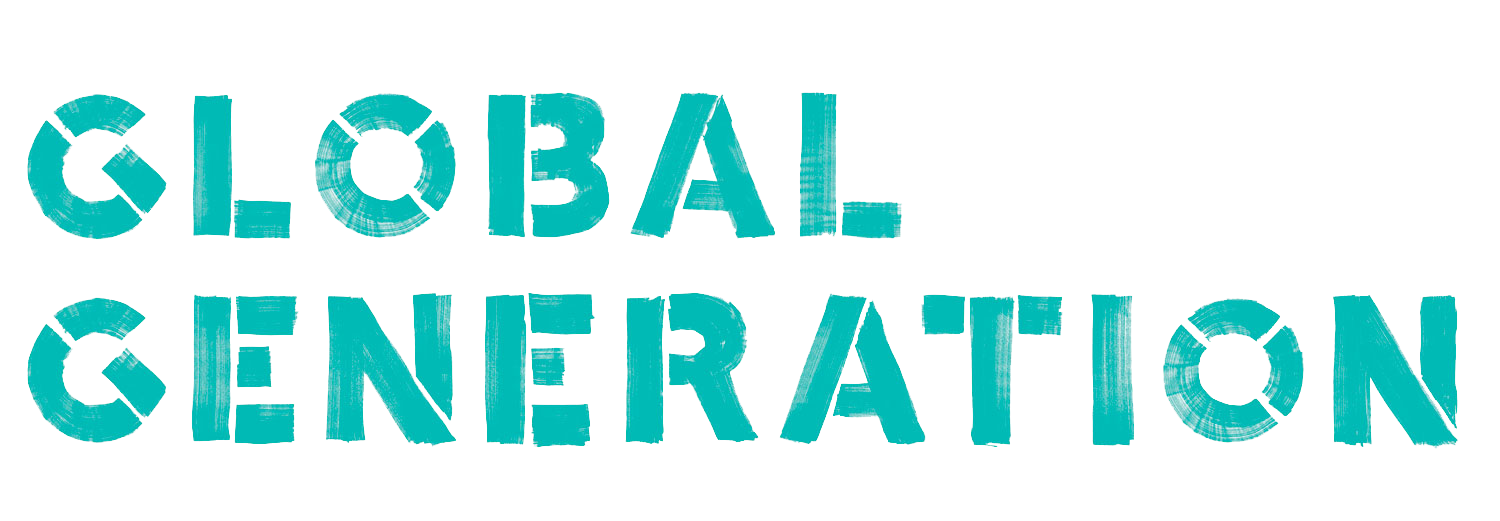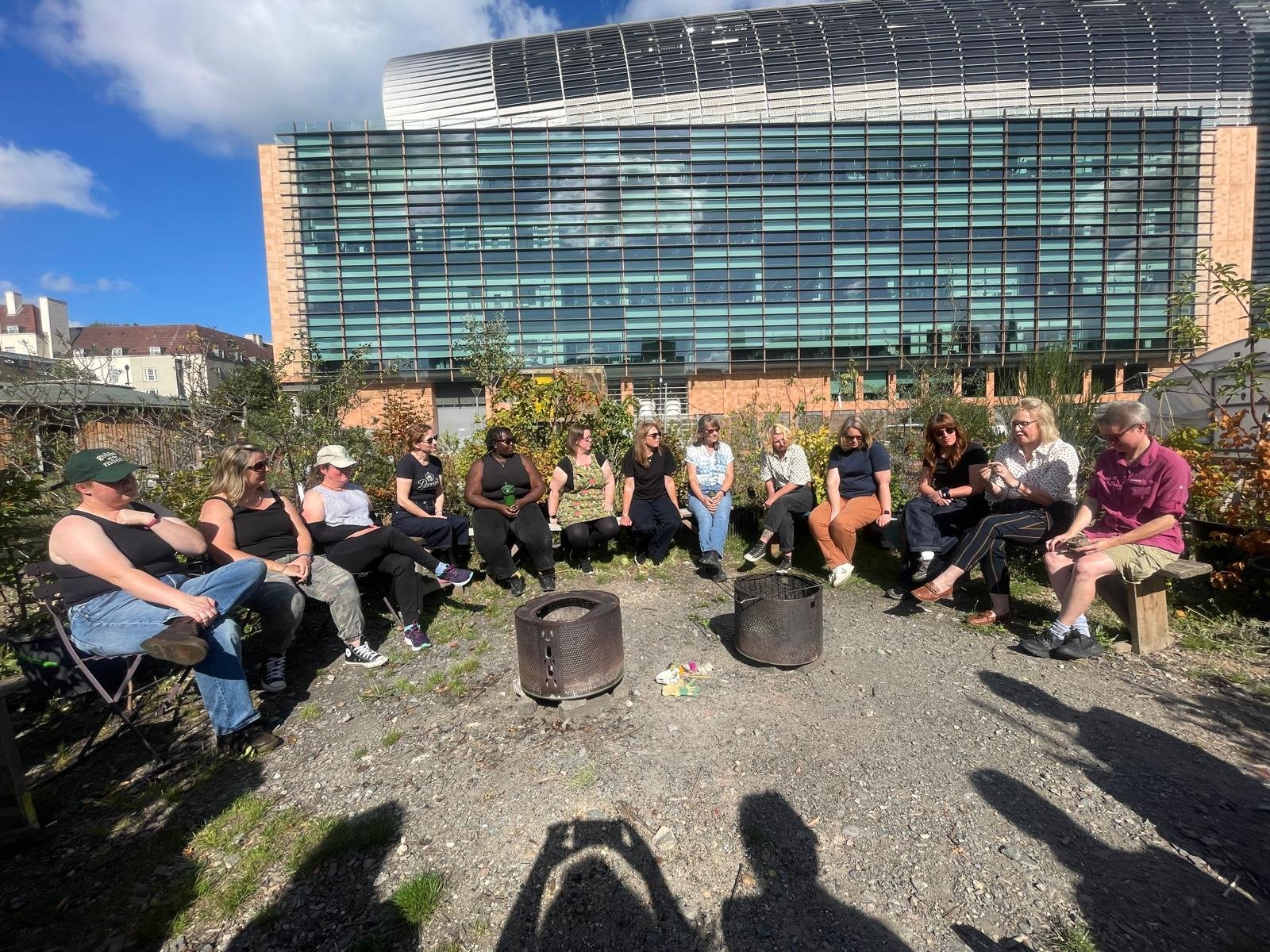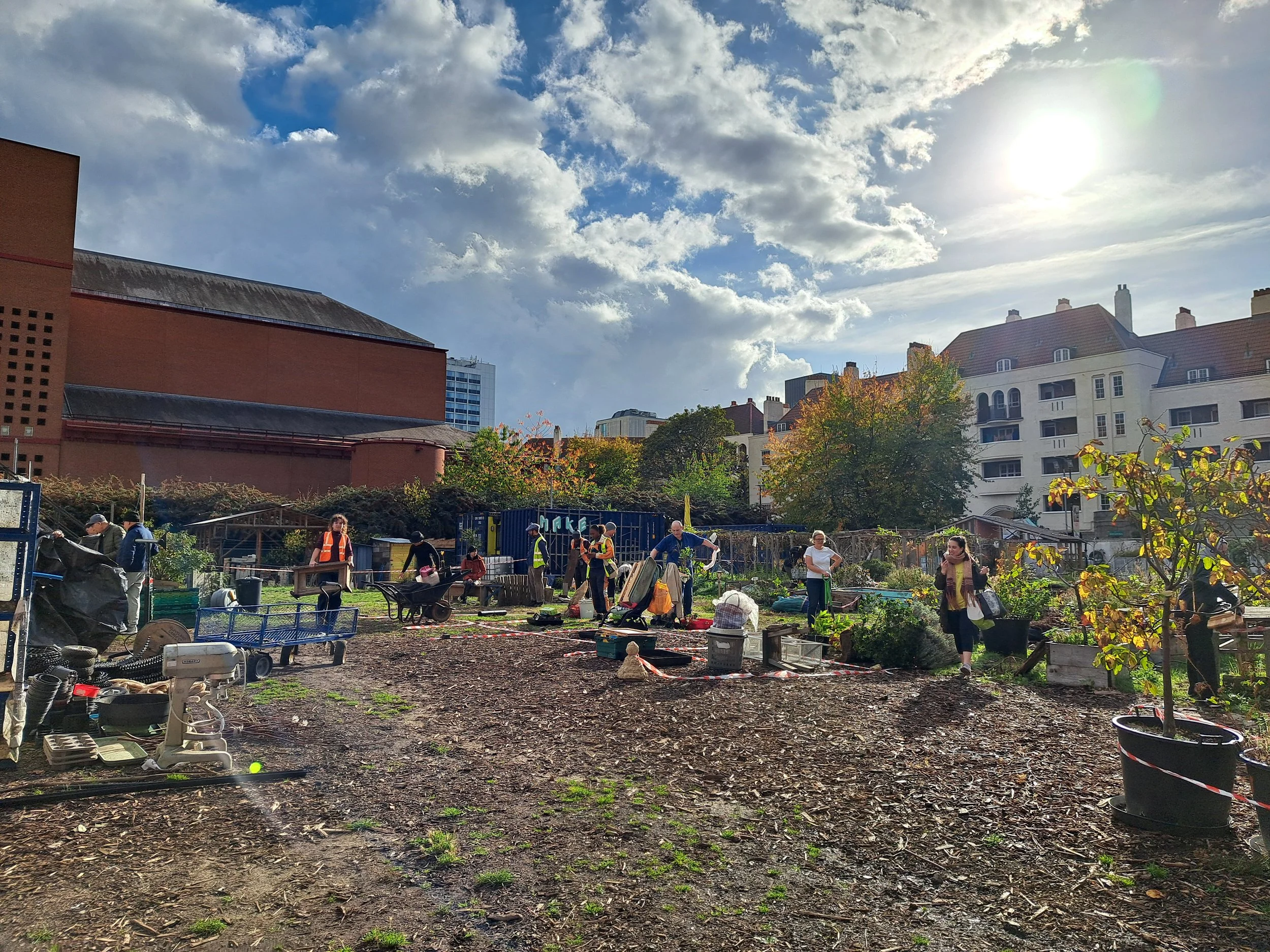The importance of ‘space’ for young people today
Sola, former generator and current member of staff, stands at the refreshments table with other team members
As many of us come to understand it, a weed is a wild plant that disrupts the land in which it grows. However, the definition is a lot more simple: “an unwanted plant”. This word, used to describe invasive plant species like Giant Hogweed that actively harms local wildlife, is what we also used to refer to the harmless dandelions or marigolds that a lot of us picked as kids. The term was never intended to serve a scientific botanical function. Instead it seeks to depict nature and land through its benefit to us as humans and our needs. Is it pretty and aesthetic? Is it lucrative or profitable? Is it worth the upkeep?
While I don’t think it’s inherently wrong to recognise a need for one plant instead of another, I do find it worrying how it has come to define what should and shouldn’t grow within a space. Whether we mean to or not, we use this term with a lot of animosity. And when establishing worth within a space by arbitrary ideals of usefulness, then at what point does every plant bud become a weed?
Recently, thinking about weeds has become a framework of sorts, which has helped me contextualise my experience as a young person in our ever-changing world. I’ve found myself thinking about an article written by cultural journalist Delia Cai, titled ‘Gen Z is The Most Rejected Generation’. It talked about how many young people today, across their personal and professional lives, have been facing increasingly higher rejection rates than any other generation we’ve seen before, referring to Gen Z as the “Ghosted Generation”. In comparison to most of the labels Gen Z gets given, this felt oddly vindicating. However what stuck with me most, was how this rejection was impacting young people’s ability to navigate these key milestone moments of our lives.
For many young people, we’ve been told that we must finish school, get top grades, go to the best university, graduate with a 2.1, secure a well paying job, rise up the corporate ladder, get married, and so on. A lot of us have fallen victim to the persistent “we did it, why can’t you?” narratives of our elders, which are further fuelled by continuous media cycles that dissect our thoughts and actions, frequently calling us lazy, unmotivated, entitled or self-absorbed. However, it is not a conscious choice to reject certain markers, a lot of us are just unable to choose them within the conditions laid out for us. Yet, we are treated as unappealing and uncontrollable weeds in our society's meticulously curated garden.
For both plants and people, we need space. It’s integral to our growth and identity formation as human beings to have space. Across history, space (particularly what is referred to as third space) has been a necessity for shaping the development of identity amongst young people. Definitions vary, but third spaces are often defined as being an alternative to the two key spaces of work or home. Unlike adults, children rarely have autonomy or power within the first and second spaces (i.e., the home, school, or work), so it is these third spaces that empower our sense of self.
For me, Global Generation was my third space. During my early secondary school years, our school’s librarian pulled me aside and asked that I join a chat with a visiting speaker from the charity who was promoting their youth programme. Now, I was the furthest person anyone would place in a space like this. By all metrics ‘a weed’ within the landscape of Global Generation. I hated being outdoors and found myself paralysed whenever I saw even the smallest of insects. I imagine I wasn't the easiest to deal with. Even so, I was met with care and guidance and given the ability to take up space.
When I was a Generator, we’d end our weekly session with a free-writing task. We’d reflected on all that we learnt, how we felt, and whatever else we wanted to share. I always hated this, because I felt like I had nothing to say. I found it hard to express myself through words so I’d mindlessly doodle instead. When time came to share with the others, I’d remember the excitement from the team in seeing my work. I was told that if I couldn’t find the words, then my random doodles were enough.
As a generation that has become so accustomed to hearing “no” and being straight up ignored, we need a space like Global Generation that tells us “yes”. That you can show up as you are, with no condition or predetermined requirement to exist here. The inexperience of young people isn't a burden, and it’s sad many of us have internalised this. Space, and our existence within it, is the innate reality of being human.
Safe to say, eleven years after first joining Global Generation, I can proudly say that while I still can’t handle insects for the life of me, a lot of key components of my identity are grounded to my relationship with nature and I can't imagine me without being in this space.




As part of the garden traineeship, we completed a permaculture design course (run by Rakesh from Roots n Permaculture). Since May, we’ve taken a deep dive into permaculture; what it is, how it works and how it can be applied anywhere and in any context. Here’s what we’ve been up to.